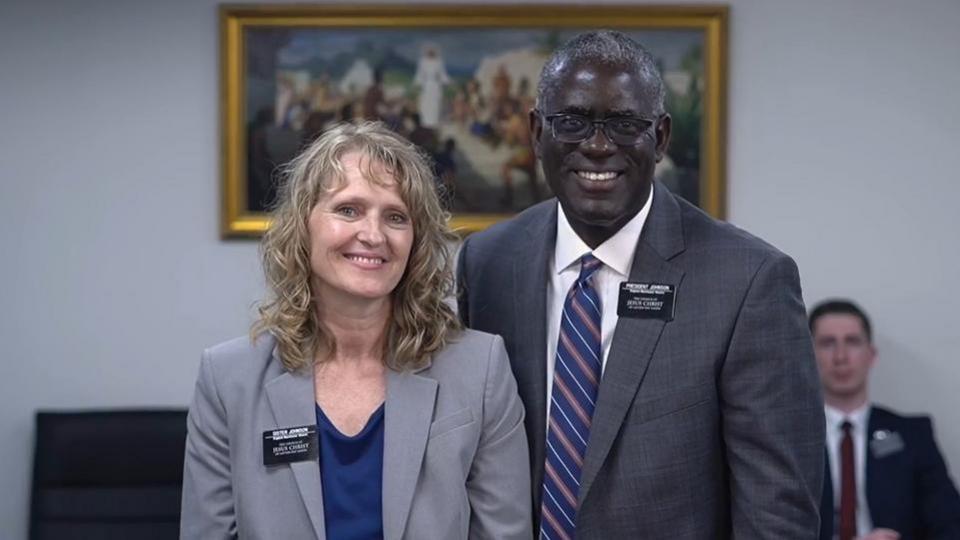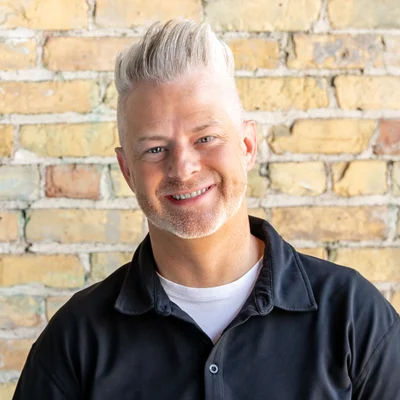
The Church of Jesus Christ of Latter-day Saints has a complex history regarding Blacks and Mormonism, particularly the former priesthood restriction that affected members of African descent until 1978. For many outside the Church, this aspect of its past raises the question: are Mormons racist? In the present day, however, Black members haven’t just found spiritual belonging in the Church—they have risen to prominent leadership roles, offering powerful testimonies of faith, inclusion, and healing. Among these leaders are Elder Helvécio Martins, Elder Peter M. Johnson, and Sister Tracy Y. Browning. Each brings a deeply personal perspective shaped by experience, conviction, and devotion to Jesus Christ.
Elder Helvécio Martins: “Remain faithful, and you will enjoy the full blessings.”
The late Elder Helvécio Martins of Brazil was the first Black man of African descent to be called as a General Authority in Mormonism. His story deeply involves the Church’s historical priesthood restriction. He joined the Church in 1972—six years before the 1978 announcement that extended priesthood ordination to all worthy male members. During those early years, he and his family faithfully participated in the Church despite the limitations.
Personal spiritual experiences helped him persevere. At one Church meeting, he prayed that he could contribute meaningfully. Though seated in the back row, he was unexpectedly invited to share his testimony with the congregation. Years later, he was overwhelmed by the Holy Spirit while walking through a temple under construction, even when at the time, he wasn’t permitted to participate in temple worship. “Although I didn’t think it would come in my lifetime,” he said, “we sensed something was in the air.”
When the priesthood ban for Black Mormons was lifted in June 1978, Martins and his wife wept with joy. “Such emotion. We cried so much. You can’t imagine how it felt.” He was soon ordained and then ordained his son. Regarding their Church community during that time, Martins said, “We realized then how much the members loved us.”
Reflecting on his faith, Elder Martins testified: “Long before I received the priesthood, I could feel [God’s] power in the bosom of my family. I know with absolute certainty that the power I have today is the power of God.” His life is a testament to patience and radical faith.
Elder Peter M. Johnson: “We can’t fight hate with hate.”
Elder Peter M. Johnson is an African American General Authority Seventy, a prominent Mormon leader. He also served as president of the England Manchester Mission from 2020 to 2022. As a teen, Johnson joined the Nation of Islam and became Muslim, an experience he credits with awakening his spiritual sensitivity and preparing him to later accept Jesus Christ.
Throughout his career in education and leadership, including roles focused on diversity and inclusion, Elder Johnson has consistently emphasized unity in Christ. When asked about Blacks and Mormonism and racism, he stated: “We can’t fight hate with hate. We must look to love to have peace and harmony, and be willing to make a sacrifice ourselves to make that happen.”
Elder Johnson has taught that racial diversity is a crucial part of God’s design. “The Lord loves diversity,” he said. “If He didn’t, He would have created everything exactly the same. The Lord also loves oneness, inclusiveness and belonging.”
He also speaks from personal experience as part of a biracial couple. His wife, Sister Stephanie Johnson, said of their marriage: “Did we have times that we felt people were not kind? Maybe, but we made a commitment to each other when we first got married that we weren’t going to let other people’s problems become ours.”
Elder Johnson teaches that healing racism requires humility, faith, and the courage to see each other as children of God: “It takes wanting to learn and understand one another; knowing that it’s okay to disagree but not be disagreeable.”
Sister Tracy Y. Browning: “He needs all His children to join His choir.”
Sister Tracy Y. Browning made history in April 2022 as the first Black woman to serve in a general presidency of the Church when she was sustained as Second Counselor in the Primary General Presidency. Her journey into the faith began as a teenager. Though she was raised with Christian values through the Presbyterian faith of her grandmother, Sister Browning found something more in Mormonism. She described her baptism as a moment of spiritual clarity: “I was happy. I felt a confirmation that what I did was the right thing and what God wanted me to do.”
Sister Browning has described how her background informs and enriches her faith: “I am a daughter of God, one of His Black daughters, and because I’m Black, I’ve had very specific cultural experiences that influence my perspective, my leadership and my faith,” she said. “I’ve learned that as I join the notes and chords of my particular life experiences with the other members of the Church. . .we create harmony.”
Sister Browning is quick to express gratitude for the warmth and belonging she feels from fellow Saints: “I felt very early on that I had a home in the Church… in their welcoming, in their willingness to teach me and invite me to join in the work.”
The Church of Jesus Christ is for Everyone
While the Church of Jesus Christ of Latter-day Saints continues to face criticism for past Blacks and Mormonism policies, the voices and leadership of Black Mormons like Elder Martins, Elder Johnson, and Sister Browning reflect a present and future grounded in hope, faith, and unity. They do not dismiss the difficulties that have existed, but neither are they defined by them. Instead, they point to Jesus Christ as the source of peace and healing.
Their examples show that the restored gospel is not just for a select group, but truly for all. Their leadership, testimonies, and love are part of many voices shaping a more inclusive and Christ-centered Church—one that reflects the richness of God’s diverse family.

By Todd Noall, Source Expert
Todd Noall is an author and religious scholar at Mormonism Explained with a focus on the history and theology of religion.

Fact Checked by Mr. Kevin Prince, Source Expert
Kevin Prince is a religious scholar and host of the Gospel Learning Youtube channel. His channel has garnered over 41,000 subscribers and accumulated over 4.5 million views. Mr. Prince also created the Gospel Learning App, a reliable platform where individuals seeking truth can access trustworthy answers to religious questions from top educators worldwide.
About Mormonism Explained
Mormonism Explained is a resource that was designed to provide objective and factual information about Mormonism, its history, doctrines, and policies. Our team of researchers consults experts and primary sources to present factual information on a variety of topics relevant to the Mormon Church.
Tags
